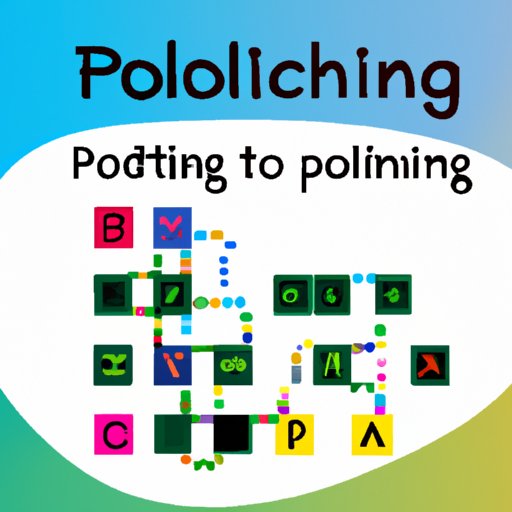Introduction
Programming is the process of writing instructions for computers so that they can carry out specific tasks. It is a vital component of many modern technologies and services, and an increasingly important skill for people looking to break into the tech industry. Whether you’re looking to develop websites, mobile apps or software, understanding the basics of programming is essential.
Learning to program can be a daunting task but with the right resources and dedication, anyone can do it. This article aims to provide a comprehensive guide on how to start learning programming, from researching the different languages available to creating small projects.
Research Different Programming Languages
Before starting to learn any programming language, it’s important to consider your goals. Do you want to create web applications? Develop games? Create mobile apps? Different programming languages are suited to different tasks and you should research which language is best suited to what you want to achieve.
Some of the most popular programming languages include Python, JavaScript, Java, C++, and Ruby. Python is a great language for beginners as it is relatively simple and easy to read, making it ideal for developing basic applications and websites. JavaScript is also widely used for web development, while Java is popular for developing mobile apps and games. C++ and Ruby are both powerful languages that are used for a variety of tasks.

Take an Introductory Course or Tutorial
Once you’ve researched the different programming languages, the next step is to take an introductory course or tutorial. There are plenty of free online resources available, such as Codecademy and Code School, which provide interactive lessons and tutorials on the basics of programming. These courses are great for getting a basic understanding of the syntax and structure of programming languages, and they can help you decide which language to focus on.
If you prefer a more structured learning environment, there are also in-person courses and bootcamps available. These courses often involve more hands-on learning and can be a great way to get up to speed quickly. However, these courses can be expensive and may require a significant time commitment.
Join Online Forums and Communities
Connecting with experienced programmers is a great way to accelerate your learning. Joining online forums and communities devoted to programming can be a great way to ask questions and get feedback on your code. Popular forums and communities include Stack Overflow, Reddit’s /r/learnprogramming subreddit, and the Coding Forum.
These forums and communities can also be a great way to stay up to date with the latest developments in the programming world. You can find out about new tools and libraries, as well as new programming languages and frameworks.

Practise Coding by Solving Challenges and Puzzles
Once you’ve got the basics down, the next step is to start practising coding by solving challenges and puzzles. There are plenty of websites dedicated to coding challenges, such as Codewars and HackerRank, which offer a range of puzzles to solve. These challenges are great for honing your skills and testing your knowledge of the language.
You can also try solving puzzles on popular sites such as Project Euler and CodeChef. These sites offer a range of mathematical and algorithmic puzzles which are designed to test your problem-solving abilities. Solving these puzzles can be a great way to develop your programming skills.
Create Small Projects
Creating small projects is one of the best ways to learn programming. Even if you have no prior experience, you can start small and work your way up. Start by creating a simple website or application, and then gradually increase the complexity as you become more confident.
When creating projects, it’s important to break them down into smaller tasks. This will make it easier to manage and will help you focus on one task at a time. It’s also important to keep track of the progress you make and document any issues you encounter. This will help you to identify any areas where you need to improve.
Finally, don’t be afraid to ask for help. There are plenty of experienced programmers who are willing to lend a hand and offer advice. Don’t be afraid to reach out to them if you’re stuck or need some guidance.
Conclusion
Programming is a valuable skill that can open up a range of opportunities. It’s a complex subject but with the right resources and dedication, anyone can learn how to program. This guide has outlined how to start learning programming, from researching different languages to creating small projects.
To recap, first research the different programming languages available, then take an introductory course or tutorial. Next, join online forums and communities and practise coding by solving challenges and puzzles. Finally, create small projects to hone your skills and get feedback from experienced programmers.
Learning to program can be a long and challenging process, but with the right attitude and resources, anyone can do it.
(Note: Is this article not meeting your expectations? Do you have knowledge or insights to share? Unlock new opportunities and expand your reach by joining our authors team. Click Registration to join us and share your expertise with our readers.)
